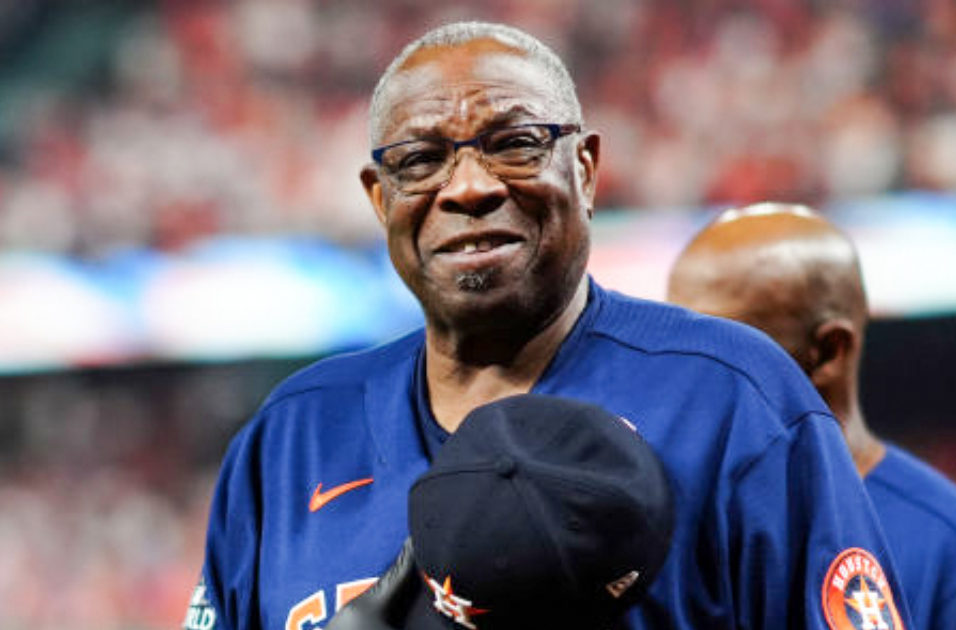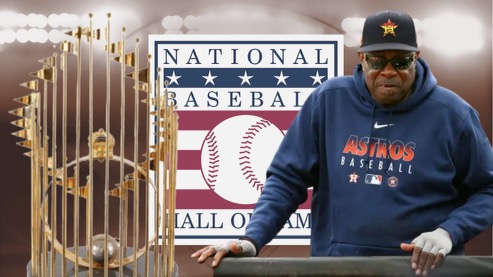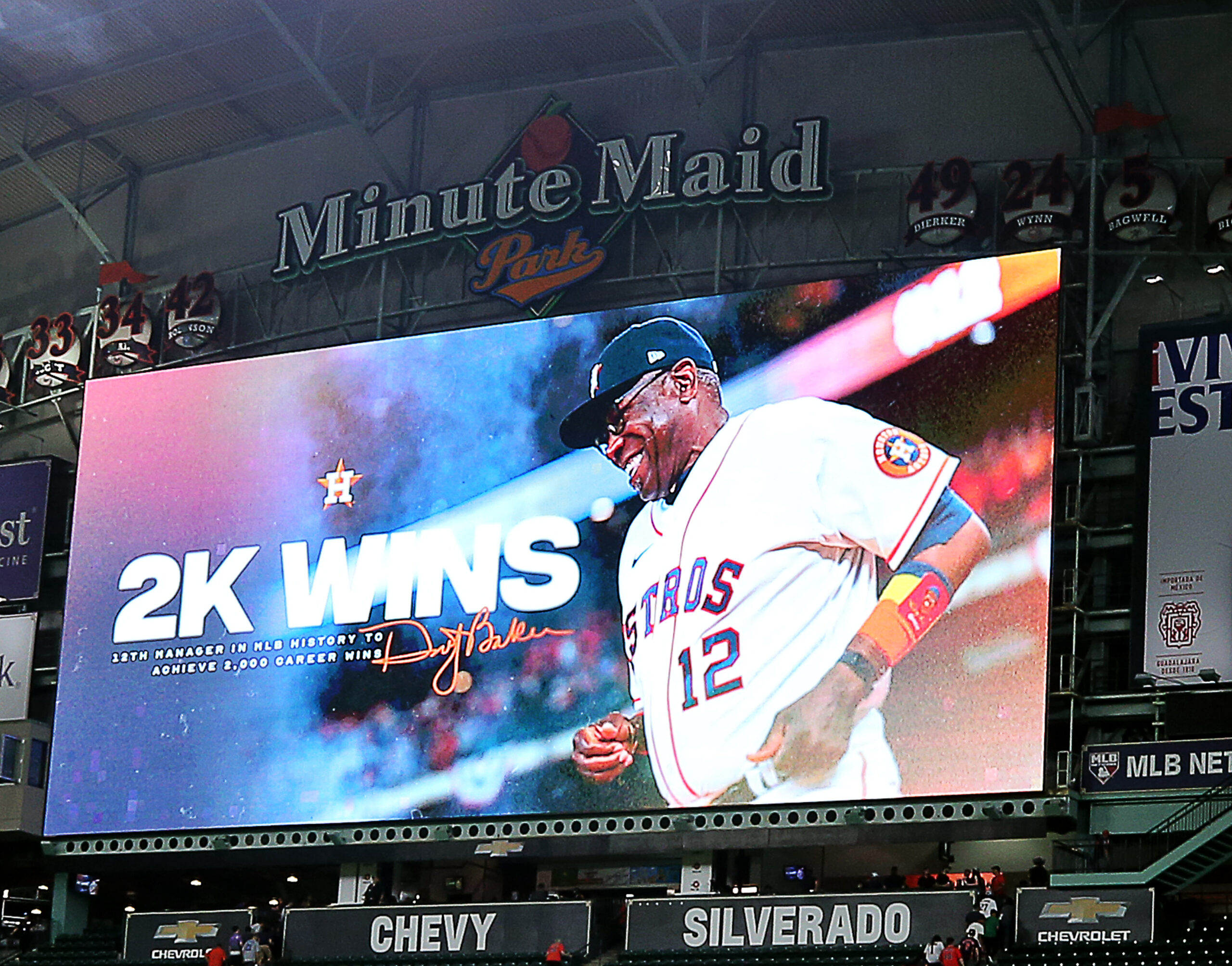Every MLB season leaves its own dope legacy and flips fans wigs with new exciting moments, players and memorable accomplishments.
This MLB season will truly be a watershed one as commissioner Bud Selig and Derek Jeter – equally important contributors to baseball during the past two decades – fade into immortality.
It’s like P. Diddy and Jay Z retiring in the same year. There are rules changes that will heighten the drama of each contest and sway emotion like a terrorist waving a Tech. Natural evolution has created a rising element of danger for pitchers. MLB is flooded with young stars on the cusp of posting their own page in professional baseball's Facebook history. Revenue is soaring, and black baseball players are at least relevant again as the overall style, culture and strategy of the game returns to a more authentic presentation.
The Shadow League breaks down the top scoops entering the 2014 season in our three-part, High Heat MLB Preview.
New Skippers Replace Legendary O.G.s
After firing 64-year-old, baseball-lifer Dusty Baker last October, Cincinnati named pitching coach Bryan Price to be the 61st manager of the Reds. He inherits a solid squad that won 90 games and clinched a wildcard spot last season. Six seasons of being “very good” didn’t sit well with GM/POBO Walt Jocketty, so they put Baker out to pasture and brought in Price, who, despite never pitching in MLB, has been the Reds' pitching coach since the 2010 season. Before coming to the Reds, he spent 10 years with the Seattle Mariners (2000-2005) and Arizona Diamondbacks (2006-2009).
Replacing the old-school provoking, bogie-smoking, baseball treasure Jim Leyland, is 44-year-old Brad Ausmus. Ausmus inherits a squad who’s been knocking on that World Series door for a hot minute now. They have a sick rotation featuring perennial all-star Justin Verlander and 2013 AL Cy Young winner Max Scherzer. Plus a two-time reigning MVP in Miggy Cabrera, and that’s just the flash. Detroit has talent across the board. They should be able to withstand the loss of Prince Fielder and compete for an AL Central crown again.
Then there's 48-year-old Matt Williams taking the reins from O.G .Davey Johnson in Washington. Washington’s young team wore weary of Johnson’s throwback attitude and Nats suits weren't thrilled about failing to make the playoffs in 2013, after a historic 98-win campaign in 2012.
These managers couldn’t have fallen into better first time situations. It’s like losing your virginity to supermodel Joan Smalls. If they don’t mess things up, these rooks could all be looking at first-year postseason runs.
New Faces
In the Red Sox’s 2-1 opening-day loss to B-More on Monday, Xander Bogaerts was the youngest opening day shortstop for the defending champs since Everett Scott in 1914 at 21 years, 181 days old. How good is this cat?
Like former Red Sox player Jacoby Ellsbury in 2008, Bogaerts is a rare rookie who goes into his first full season already flossing a championship ring. He helped the Red Sox get to the promise land last season after getting the call to The Big Show, batting .296 and slugging .481 in the postseason. He has hit at every level, he proved he can handle pressure and at 6-foot-1, 210 pounds he’s got a pro-ready body. His greatest attribute ? The AL isn’t gushing with dope shortstops right now.
A lot of analysts are predicting Bogaerts to be an all-star, but the Red Sox caution that he’s still a work in progress. He probably won’t be Freddy Lynn rookie good. Freddie Ballgame hit .331 with 21 homers and 105 RBIs in his rookie season in 1975, but it will be a blast watching the young gun develop.
To Swipe Or Not To Swipe? That's a Rhetorical Question.
The $1 million question in Cincy this season is how many bases will speed demon Billy Hamilton swipe? Can he get to 100 in his rookie season? Acceleration won’t be an issue for “Billy The Slid,” who stole a minor-league record 155 bases in 2013. His biggest question coming into spring training was how well would he hit? You can’t steal without getting on base.
The Reds sent him to Puerto Rico for some winter ball and he went to spring training early to work on hitting, most specifically hitting the ball on the ground and bunting. All of the preparation seemed to work because Hamilton performed beyond expectations this spring. He was working counts and producing nine and 10 pitch at bats. The lanky Hamilton hit .327 with 14 runs, nine steals and a .381 OBP in 55 at-bats. If he can hit .280 with an OBP of .385, 80 steals is a real possibility. My bet is by midseason he will be known as the most exciting player in baseball and the stolen base will become a featured and recognized lethal weapon in the sport again. Just look at how run production is down in the league and steroid testing is up. The time is now for a Billy Hamilton and the baseball gods are moving him front and center.
Can Felix Hernandez and Robinson Cano Move The Crowd And The Mariners Towards a World Series?
The Mariners’ signing of Cano rocked the baseball world and showed that the Yankees will no longer be bidding against themselves for superstar talent. Seattle actually outbid the Yankees for Cano, signing the all-star second baseman and his Roc Nation Sports conglomerate (who likens him to Michael Jordan in marketability range ) to a 10-year, $240 million deal. They made a few smaller moves in addition to Cano but it figures to take much more than that to improve a club that went 71-91 a year ago, finishing in fourth place in the AL West for the fourth straight year. Once again, the team will rely on the rapid development of young players. Cano and Hernandez are elite pieces, but it will take a few years for Seattle to make noise.
Bud Selig’s Farewell Tour
Bud Selig will retire as MLB Commissioner following the 2014 season. Selig said he will play a role in the selection of his successor, but said that there is no timetable in place to pick that person. Selig, the ninth commissioner, is to step down in January and he was interviewed Monday on ESPN Radio's "Mike & Mike" show.
"It's a process that is ongoing and that we are going to keep very confidential," Selig said. "Certainly, I have done the job for 23 years and everybody understands that I understand the job and all its parameters and everything that goes (with it).
"So I'll be involved in the picking of the next commissioner. It's something I want to be done in a very dignified, very quiet, very sensitive and thoughtful manner."
Bud Selig’s failures and successes have been exceedingly high-profile. He gained power by what was more or less a coup against then-Commissioner Fay Vincent and quickly found himself in the center of a sticky labor situation which sparked the 1994-95 strike. His ascent to leadership was boosted by the fact that as former owner of the Milwaukee Brewers, he sided with owners who wanted to horde money and shortchange worthy players.
Later, he put his imprint on the game by presiding over some things that have improved baseball and pissed off purists like interleague play, realignment and All-Star game restructuring. No matter how he tries to retroactively clean up his image, we all know that Selig’s greatest victory – bringing baseball out of the doldrums, bringing the fans back, capitalizing on new revenue and TV money to grow the sport into a multi-billion dollar athletics empire – couldn’t have been achieved without his most notable sin – turning the other cheek and allowing the explosion of PEDs during his reign.
To Selig, the bottom line is the bottom line.
"People talk about sports and popularity," said Selig, who turns 80 in July. "Well, this sport is more popular today than it has ever been by a long shot by any criteria one wants to use. Any criteria. Did I believe in 1992 or 1994 or 1996 that this would happen? No, I wouldn't be honest if I told you I did."
C’mon Bud, honesty and effective leadership rarely go hand in hand. You were as ruthless as you had to be to grow the league, and compassionate in all matters that made you look good like supporting programs to increase African-American participation in baseball. One day, maybe he will just keep it real and admit that at the time it was a desperate “necessary evil.” Baseball was in a battle for its marketing soul and just as in war time, tough executive decisions had to be made that Selig knew wouldn’t be popular once exposed. It’s just sad how the players he used to execute his come-up were then sent to the slaughter.
Redemption Song
A-Rod finally stopped bucking the system, accepted the fact that it was, “dominos muthaf@%ka” and ate the 162-game PED suspension baseball so vigorously fought to lace him with. At 39, the suspension all but ends the career of one of baseball’s most prolific hitters and one of the main poster-children for MLB’s “Steroids Era.”
Ryan Braun suffered a similar fate, but his ending won't be nearly as tragic. After denying the allegations and going so far as to allow a specimen handler to lose his job over Braun’s lies, the former MVP eventually had to take his medicine.
Monday, Braun made his first start since July 20 and his first appearance since July 21, as he accepted a 65-game suspension from Major League Baseball on July 22 for violations of the Basic Agreement and its Joint Drug Prevention and Treatment Program. At just 30-year-old Braun has a ton of time to redeem himself and Brewer’s fans have already forgiven him as they gave the cheater a standing ovation in his first at-bat on opening Day.
"It was special," Braun said. "It was an emotional moment for me. I kind of allowed the adrenaline and the emotion of the moment to take over and had a pretty horrendous at-bat. Swung at some pitches that I typically don't swing at. But something that I'm very thankful for and appreciative of."
Bring It Back Come Rewind
As baseball inches into the 21st century, Major League Baseball's use of expanded replay was immediately tested in Monday's opener between the Chicago Cubs and the Pittsburgh Pirates, with one call being upheld and another overturned.
Cubs’ manager Rick Renteria challenged an umpire’s call when Jeff Samardzija was called out at first base in the fifth inning at PNC Park. The call was confirmed on replay after a two-minute delay. That marked the first used of expanded replay in regular season play. Then in the 10th inning of a scoreless game, a safe call was overturned on an attempted pickoff play at first by Pittsburgh reliever Bryan Morris on Chicago’s Emilio Bonifacio. It was overturned after a 2 ½ -minute delay.
Expanded replay was unanimously approved in January at the quarterly Owners Meetings and the Major League Baseball Players Association and World Umpires Association also signed cosigned it. Until now, video review was only allowed for boundary calls involving home runs, and it happened at the discretion of the umpires, who would exit the field to look at replays, return to make their decision known and then were greeted by resounding cheers or boos depending on the verdict.
Beginning this season, each manager will start a game with one challenge. If it is upheld, he retains his challenge but can never have more than two in a game. If the manager uses up his challenges before the start of the seventh inning, he is out of luck, adding a new element of strategy to the game. Beginning in the top of the seventh, the crew chief is empowered to institute a review.
Most calls can be challenged. The system was tested in spring training and it is sure to serve as a double-edged sword for managers. When the call is reversed in a skip’s favor, it will be the greatest modern implementation since stadium lights. When the call goes against a team, managers will positively reflect on the days when an ump’s call was the final word. Now, there’s an eye in the sky that has final say on what goes down between the diamond.



